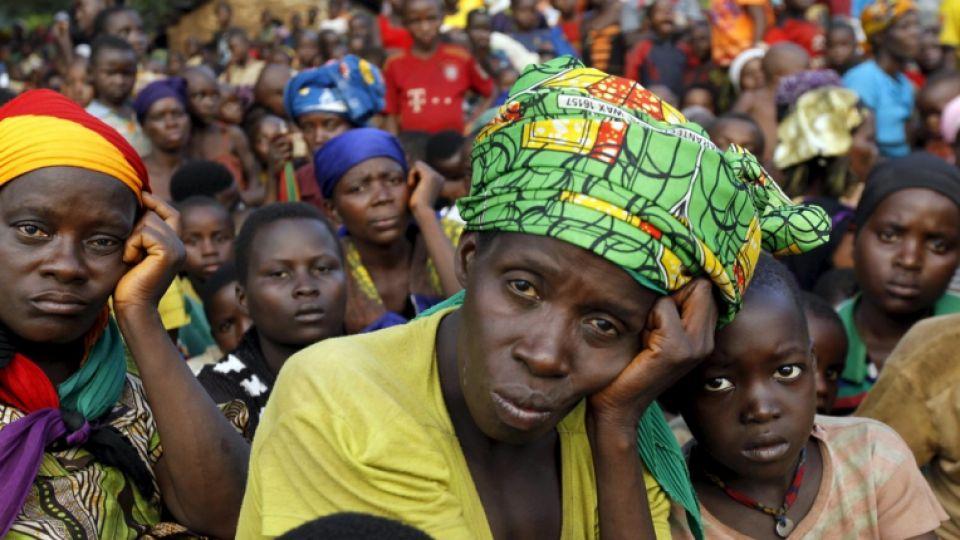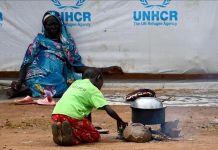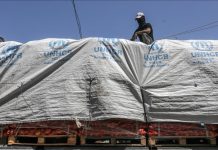Author: DEUS NGOWI
AfricaPress-Tanzania: THE EAST African Community (EAC) and the United Nations High Commissioner for Refugees (UNHCR) are on verge of forging a stronger relation that would address refugees ‘challenges in the region.
The duo is doing so in view of the emerging challenges of the refugees in the EAC region after the coming of a new UNHCR Regional Director for the East and Horn of Africa and Great Lakes Region, Ms Clementine Awu Nkweta Salami.
Ms Salami forthwith paid a virtual courtesy call on the EAC Deputy Secretary General (DSG), for Productive and Social Sectors, Mr Christophe Bazivamo on behalf of the EAC Secretary General, Ambassador Liberat Mfumukeko, who introduced her to the EAC Secretariat.
She will be based at Nairobi, Kenya.
In response, Mr Bazivamo congratulated the regional director on her new assignment and expressed hope that the EAC and UNHCR would make great strides in implementing joint initiatives in the management of the refugee’s problems in the region.
However, Mr Bazivamo noted that the EAC and UNHCR signed a Memorandum of Understanding (MoU) on March 9th, 2010 in Dar es Salaam, Tanzania that provided a framework for cooperation, where both parties would continue to work together to implement activities geared towards development and harmonisation of partner states’ refugee policies and laws.
On card also is the implementation of free movement of persons as enshrined in the EAC Common Market Protocol and the development of common mechanisms for management of refugees.
Under Article 124 of the Treaty, peace and security are prerequisites for social and economic development of the Community and vital to the achievement of the objectives of the EAC.
“Accordingly, one of the strategies for the realization of the intentions of the aforesaid Article would be coming up a common mechanism that would manage refugees in the bloc.
“It should be noted that the influx of refugees in the Community can hinder the citizens from reaping the benefits of integration, since it may impact the implementation of the EAC Customs Union, Common Market and Monetary Union protocols that are critical steps towards the EAC Political Federation,” he added.
Equally, Mr Bazivamo said that the bloc envisages a situation where even if refugees exist, they should benefit from government programmes such as education, health, employment and free movement and active participation in the socio-economic activities in the region.
The DSG highlighted areas that UNHCR has been supporting, including capacity building in refugee management such as financial and technical support to conduct a study on harmonization of refugee policies and legislation in the EAC in 2012.
“A consultant was also hired to develop a draft EAC Policy on Refuge Management in the Financial Year 2018/19.
The UNHCR has also been supporting and participating in the meetings of the EAC Refugee Technical Working Group and the EAC Chiefs of Refugee Management Entities,” added the DSG.
Since signing of the memorandum, both parties have continued to work together to implement activities geared towards realization of the areas of cooperation contained in the MoU.
Article II of the MoU provides for areas of cooperation that are conflict prevention and peace building, early warning and response, movement of persons, immigration and refugee management.
Others are human trafficking and mixed migration population movements and promotion and protection of human rights in East Africa.
A draft Policy on the EAC Refugee Management was developed following the guidance provided during the meeting of Chiefs of Refugee Management Entities and UNHCR Technical Experts held on May17th, 2019.
The draft Policy was transmitted to the EAC partner states for final review in October last year. The states are expected to finalise the national consultations in September this year.
“Upon finalisation, a regional meeting will be convened of the Chiefs of Refugee Management and the UNHCR before the revised draft policy is presented to the Sectoral Council on Interstate Security for approval and the Council of Ministers for adoption.
It is envisaged that the Policy will be adopted during the Council sitting in November 2020,” said Mr Bazivamo.







